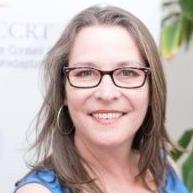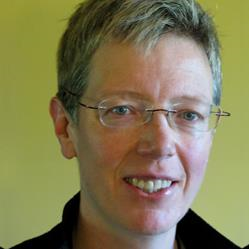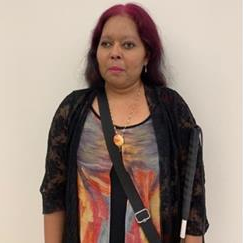Disability and Work in Canada 2020 Virtual Conference:
The Strategy in Action—Pathways and Impacts
Day 3: Tuesday December 1, 2020 – Strengthening Supports for Workers

DISABILITY AND WORK IN CANADA 2020
Strategy-in-Action -- Pathways and Impacts
Virtual Conference – November 25 & 26 and December 1 & 2, 2020
The Disability and Work in Canada 2020 (DWC 2020) Conference was held virtually this year over four days in late November and early December (November 25 & 26 and December 1 & 2). The theme for this year’s conference was the “Strategy in Action—Pathways and Impacts”, with subthemes for each day as follows:
- Wednesday November 25, 2020 – The Big Picture--Challenges and Opportunities
- Thursday November 26, 2020 – Progress in the Workplace
- Tuesday December 1, 2020 – Strengthening Supports for Workers
- Wednesday December 2, 2020 – Moving Forward Together
Day 3: Tuesday, December 1, 2020 – Strengthening Supports for Workers
Jump To:
- Opening Remarks (MC) - Day 3
- Keynote: Disrupting through Disability: Taking Charge of the Change
- Vignette: Vignette by MJ
- Parallel session 1: Report from projects funded by Accessibility Standards Canada
- Parallel session 2: Mentorship, Advancement and Promotion of Persons with Disabilities
- Parallel session 3: School-to-Work Transitions (Part 2) - A Multidimensional View of the School-to-Work Transitions of Young People with Disabilities: Highlighting Opportunities for Policy and Practice
- Break with Vignette Page: Link to Vignette Page
- Panel session 1: Strengthening Supports for Employees with Episodic Disabilities
- Panel session 2: Lessons and challenges from the Review of the WCB in British Columbia: The New Directions Report 2019
- Panel session 3: Bridging the Gap between Workers with Disabilities and Employers who want an Inclusive Workplace but lack the Tools and Knowledge: The Inclusive Employment Advocacy Project
- Panel session 4: Closing the Autism Employment Gap in Canada
- Closing for the Day (MC) - Day 3
Opening Remarks (MC) - Day 3 Theme: Strengthening Supports for Workers
 MC: Kathy Hawkins, Manager, InclusionNL
MC: Kathy Hawkins, Manager, InclusionNL
Keynote: Disrupting through Disability: Taking Charge of the Change
Moderators: Anna-Karina Tabunar, Founder & President, Talent Untapped Group and Maureen Haan, President & CEO, Canadian Council on Rehabilitation and Work (CCRW)
Keynote Speaker:
 Al Etmanski, Writer, Community Organizer, Disability Advocate
Al Etmanski, Writer, Community Organizer, Disability Advocate
Additional Materials and Resources:
- Al’s latest book is The Power of Disability: 10 Lessons for Surviving, Thriving and Changing the World
- He blogs at aletmanski.com
Tags: Human rights, Initiatives, Lived experience, Partnership, Wellness
Vignette: Vignette by MJ
Vignette by MJ. CASE - Profiles of Employment Success. Our thanks to the Canadian Association of Supported Employment for the vignettes.
Tags: Accommodation, Disability-confident workplace, Hiring
Parallel session 1: Report from projects funded by Accessibility Standards Canada
Moderator:
 Ron Saunders, Adjunct Scientist, Institute for Work & Health (IWH)
Ron Saunders, Adjunct Scientist, Institute for Work & Health (IWH)
Speakers:
- Mahadeo Sukhai, Head of Research and Chief Accessibility Officer, Canadian National Institute for the Blind (CNIB)
- Arif Jetha, Scientist, Institute for Work & Health (IWH)
- Jutta Treviranus, Director of the Inclusive Design Research Centre and Professor, OCAD University
- Boris Vukovic, Director, READ Initiative, and Adjunct Research Professor with the School of Industrial Design
- Samantha Butler, Research Lead, READ Initiative
- Tara Connolly, Assistant Director, Research & Development, READ Initiative
- Lorraine Godden, Instructor II, Arthur Kroeger College of Public Affairs
- Janet Mantler, Ph.D, Associate Professor, Department of Psychology
- Mirvat Sanaallah, Project Officer, READ Initiative
- Linda Schweitzer, Professor, Sprott School of Business
Session Description: A number of exciting new initiatives have recently been funded by Accessibility Standards Canada that focus on advancing employment opportunities for persons with disabilities. In this session, we have presentations about the work under way in four of these projects. Project leads or teams describe their planned activities and how they complement a broader strategy for disability and work in Canada.
Additional Materials and Resources:
- Links to resource documents:
- From Arif Jetha:
- From Jutta Treviranus:
- From Boris Vukovic (for the Carleton team)
Parallel session 2: Mentorship, Advancement and Promotion of Persons with Disabilities
Moderator:
Emile Tompa , Director, Centre for Research on Work Disability Policy (CRWDP)
, Director, Centre for Research on Work Disability Policy (CRWDP)
Speakers:
- Dan Samosh, Postdoctoral Fellow, Centre for Research on Work Disability Policy (CRWDP), Centre for Industrial Relations and Human Resources (CIRHR) at the University of Toronto, and the Institute for Work and Health (IWH)
- Karen Kelsey, Relationship Manager, Lime Connect
- Reno Michel Hache, Project Manager, MentorAbility Canada Project, CASE
- Jamie Burton, Chief Business Development Officer, CCRW
- Mahadeo Sukhai, Head of Research and Chief Accessibility Officer, Canadian National Institute for the Blind (CNIB)
Session Description: Workers with disability are often relegated to entry level jobs and are not provided the challenges and opportunities commensurate with their skills and talent. Mentorships, advancement, and promotion of persons with disabilities in the world of work is an area in need of guidance from research and field knowledge from innovative initiatives. This session profiles evidence and initiatives that are setting the groundwork for the way forward in this area.
Additional Materials and Resources:
Tags: Career advancement, Disability-confident workplace, Initiatives, Innovation
Parallel session 3: School-to-Work Transitions (Part 2) - A Multidimensional View of the School-to-Work Transitions of Young People with Disabilities: Highlighting Opportunities for Policy and Practice
Moderator:
 Pinder DaSilva, Senior Director, Programs & Services, Abilities Centre
Pinder DaSilva, Senior Director, Programs & Services, Abilities Centre
Speakers:
- Arif Jetha, Scientist, Institute for Work & Health (IWH)
- Cailen Elliott, National Manager, Youth the Future Program, Canadian Council on Rehabilitation and Work (CCRW)
- Roxana Jahani Aval, Doctoral Student, University of Windsor in the Single Juris Doctoral Program
Session Description: The school-to-work transition is characterized by a number of changes that mark entry into the labour market including exiting educational roles, finding paid work, sustaining employment and career advancement. The school-to-work transition is particularly challenging for the two million young people living with a disability in Canada. Statistics Canada data shows the employment rate of youth (18-24 years, 32%) and young adults (25-35 years, 54%) living with a disability is significantly lower than their healthy counterparts (52% and 82% respectively).
Difficulties faced by young people during the school-to-work transition can have a lasting effect and contribute to adverse employment market outcomes (e.g., underemployment, lost productivity) that extend across the life course. Of note, the experience of transitioning to the workforce can be shaped by intersecting characteristics of young people (e.g., disability type, gender, race, sexuality) and their exposure to the changing nature of work.
This panel presentation includes a young person with lived experience, an employment service provider, a policy leader and a researcher. Each panel member will provide a unique perspective to the school-to-work transition. In particular, presenters will highlight the individual, psychosocial, organizational and policy-level barriers and facilitators to the school-to-work transition for young people with disabilities. The panel will also highlight potential programmatic and policy approaches that can be taken to support young people with disabilities as they enter the labour market and to increase inclusivity of workplaces.
Tags: Career advancement, School-to-work transition
Break with Vignette Page: Link to Vignette Page
Tags: Accommodation, Disability-confident workplace, Hiring
Panel session 1: Strengthening Supports for Employees with Episodic Disabilities
Moderator:
 Ron Saunders, Adjunct Scientist, Institute for Work & Health (IWH)
Ron Saunders, Adjunct Scientist, Institute for Work & Health (IWH)
Speakers:
- Monique Gignac, Senior Scientist and Scientific Co-Director, Institute for Work & Health
- Melissa Egan, National Lead, Episodic Disabilities, Realize
- Helen Anderson, Director of Information & Support, Arthritis Society
Session Description: This session examines the successes and challenges of three initiatives to create disability-confident workplaces while strengthening supports for employees with episodic disabilities. Episodic disabilities is a term used to describe a range of chronic conditions that can be very different in nature but are all intermittent, unpredictable and invisible. The three projects each seek to provide employers with the information, skills and tools they need to foster inclusive workplaces for people with episodic disabilities, while also providing employees with resources to thrive at work.
Additional Materials and Resources:
- Arthritis & Work Resource Hub (PowerPoint) by Dr. Helen Anderson, Arthritis Society
- Accommodating and Communicating about Episodic Disabilities (ACED): A partnership to deliver workplace tools and resources to sustain the employment of people with chronic, episodic conditions (PowerPoint) by Dr. Monique Gignac, Institute for Work and Health
- Recognizing the Value of eMPloyees with Episodic Disabilities (PowerPoint) by Melissa Egan, Realize
Tags: Disability-confident workplace, Employment supports, Evidence-informed practices
Panel session 2: Lessons and challenges from the Review of the WCB in British Columbia: The New Directions Report 2019
Moderator:
 Steve Mantis, Chair, Research Action Committee, Ontario Network of Injured Workers Groups (ONIWG)
Steve Mantis, Chair, Research Action Committee, Ontario Network of Injured Workers Groups (ONIWG)
Speakers:
- Janet Patterson, Retired labour lawyer, BC
- Jim Parker, Labour Relations Officer, WCB Advocacy, BC Nurses’ Union
Session Description: Background In March 2019, the BC Minister of Labour asked Janet Patterson to undertake a review of Workers Compensation in BC with the following terms of reference:
a. The policy and practices used in the workers’ compensation system relating to supporting injured workers return to work.
b. An evaluation of current WorkSafeBC policy and practices through a Gender- based Analysis Plus (GBA+) lens.
c. Modernizing WorkSafeBC’s culture to reflect a worker-centric service delivery model. This model should incorporate a best practices, research-supported approach to managing physical and mental injuries caused by the workplace.
d. Recommendations dealing with issues related to the improved case management of injured workers.
e. What specific steps are required to increase confidence of workers and employers in the workers’ compensation system, including but not limited to the Fair Practices Office, and in the other services provided by WorkSafeBC.
f. Whether there are any other urgent compensation issues that were not addressed in the final report to the Board of Directors of WorkSafeBC on how to manage the unappropriated balance in the Accident Fund.
Additional Materials and Resources:
- New Directions: Report of the Workers' Compensation Board Review, 2019 (PDF) by Janet Patterson, October 30, 2019
- Read the addendum (PDF) to the report including acknowledgements of presenters and workers' voices
Tags: Workers’ compensation
Panel session 3: Bridging the Gap between Workers with Disabilities and Employers who want an Inclusive Workplace but lack the Tools and Knowledge: The Inclusive Employment Advocacy Project
Moderator:
 Alec Farquhar, Chair, Engagement, Centre for Research on Work Disability Policy (CRWDP)
Alec Farquhar, Chair, Engagement, Centre for Research on Work Disability Policy (CRWDP)
Speakers:
- Video on the Inclusive Employment Advocacy Project
- Yin Brown, Toronto Chapter Member, past Chapter President and Project Director, Alliance for Equality of Blind Canadians (AEBC)
- Minette Samaroo, National Vice-President and President, Toronto Chapter, Alliance for Equality of Blind Canadians (AEBC)
- Christine Zannier, Secretary, Toronto Chapter, Alliance for Equality of Blind Canadians (AEBC)
Session Description: There is unfortunately often a gap between the job search and employment experience of persons with disabilities and the capacity and confidence of employers to recruit persons with disabilities. The Inclusive Employment Advocacy Project, developed by the Alliance for Equality of Blind Canadians, is an important effort to bridge that gap. It resulted in the Disability Advantage Training Program, which has been delivered to a number of major employers. This panel will describe the origins, development and delivery of the Program.
Additional Materials and Resources:
- The Alliance for Equality of Blind Canadians (website)
- AEBC - The Disability Advantage Training Program (video)
- Disability Advantage Program Detailed Report
- The Disability Advantage Program - a Training Program for employers highlighting the benefits of hiring and working with persons with disabilities. To learn more about this program, please go to: http://www.blindcanadians.ca/inclusiveemployment
- Follow us: Instagram www.instagram.com/aebctoronto_chapter/?hl=en
- Facebook: https://www.facebook.com/pages/category/Charity-Organization/AEBC-TorontoChapter-879899762365089
- Twitter: @AEBCToronto
Tags: Disability-confident workplace, Hiring
Panel session 4: Closing the Autism Employment Gap in Canada
Moderator:
 Maureen Haan, President & CEO, Canadian Council on Rehabilitation and Work (CCRW)
Maureen Haan, President & CEO, Canadian Council on Rehabilitation and Work (CCRW)
Speakers:
- Vanessa Tomas, PhD Student, University of Toronto
- Stephanie Côté, Research and Policy Analyst, Canadian Autism Spectrum Disorder Alliance (CASDA)
- Corey Walker, Project Lead, Success in the Workplace, Sinneave Foundation
Session Description: Despite many Autistic people being able and eager to work, they face worse employment outcomes compared to their neurotypical peers and struggle to find and maintain employment. Only 33% of Canadians with autism work compared to 79% without any disability. Additionally, Autistic Canadians are often not eligible for federal or provincial employment support. Due to these gaps, improving outcomes related to achieving and maintaining competitive employment has been prioritized as an area for immediate federal action by Canadian stakeholders. Specifically, Autistic Canadians, family members, researchers, and service providers urge for a focus on the creation of inclusive workplaces and enhancement of pre- and regular employment programs. Thus, this year, the Canadian Autism Spectrum Disorder Alliance (CASDA) undertook two key projects, one with Ready, Willing, & Able to identify eligibility and delivery issues of current employment programs for Autistic Canadians, and one with Kids Brain Health Network (KBHN) to develop policies that may inform Canada’s upcoming National Autism Strategy regarding employment. As such, the aims of this presentation are to: 1) introduce the Autism Employment Scan of Canadian employment programs; and 2) share findings from the developed policy briefs on pre-employment programs and inclusive workplaces. This presentation will showcase key results, highlight connections with the Pan-Canadian Strategy for Disability and Work, and present opportunities for you and/or your organization to get involved in closing the employment gap between Autistic and neurotypical Canadians. In addition, this session will be joined by Corey Walker who will discuss his new toolkit project.
Additional Materials and Resources:
- Closing the AUTISM EMPLOYMENT GAP In Canada (PowerPoint) by Vanessa Tomas and Stephanie Côté
- Autism Employment Scan (survey) for attendees interested in participating with their organization or sharing with service providers who help Autistic people with employment: https://www.casda.ca/autism-employment-scan/
Tags: Employment supports, Initiatives, Life-course perspective, Lived experience, Partnership
Closing for the Day (MC) - Day 3 Theme: Strengthening Supports for Workers
 MC: Kathy Hawkins, Manager, InclusionNL
MC: Kathy Hawkins, Manager, InclusionNL






























